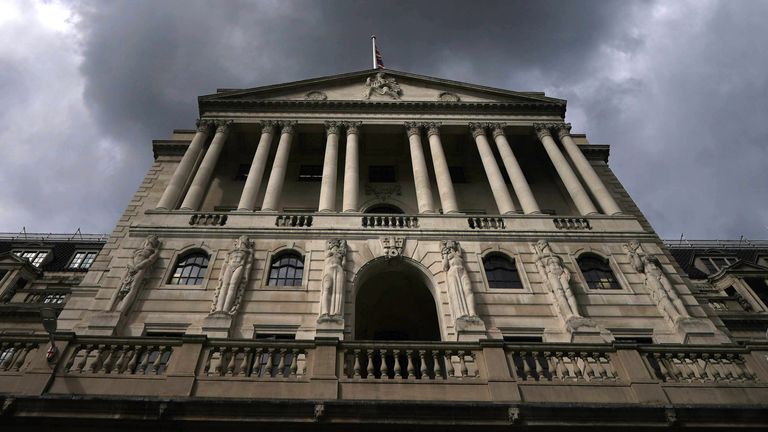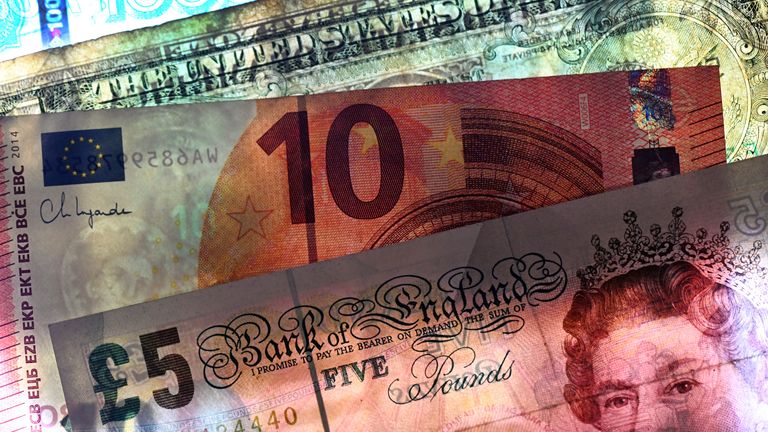One thing that quite often puzzles people who do not work in financial markets is their tendency to treat seemingly good news as bad.
We got a classic example on Friday with news that US employers added 336,000 jobs in September.
That was up from 227,000 in August (a figure itself revised higher from the previous 187,000) and way ahead of the 170,000 Wall Street had been looking for.
The numbers were, in the jargon, very “hot”.
Good news? Well, yes, if you are one of the Americans who was able to move into employment during the month or switch to a better-paid role elsewhere.
So far as markets were concerned though, it was anything but good news.
The figures suggest that the US economy is continuing to motor, despite the fact that the US Federal Reserve has raised interest rates 11 times since March 2022 to combat inflation.
That, in turn, means that the Fed may have to resume rate hikes – having not done so since 27 July.
Accordingly, yields – which rise as the price falls – on US Treasury bonds spiked higher.
The yield on two-year notes jumped to as high as 4.847%, having closed on Thursday evening at 4.716%, while the yield on 10-year US Treasuries, which had been 4.716% on Thursday evening, jumped to as much as 4.858%.
Yields are now approaching the multi-year highs hit earlier this week as markets started to price in the possibility of interest rates remaining higher for longer – a process that got under way in earnest towards the end of September.
Hetal Mehta, head of economic research at the wealth manager St James’s Place, said: “Today’s payrolls print was punchy, with the monthly change nearly double what the market was expecting and the highest since January.
“When we zoom out, we can still see evidence of an improvement in the labour market imbalance, but today’s print underscores the slow progress; the US still has far more job openings than it has people looking for work.
“This is clearly inconsistent with what the Fed requires to get inflation down, let alone signal rate cuts.”
Seema Shah, chief global strategist at Principal Asset Management, added: “The blowout jobs report is maybe not so good news for markets.
“Not only does today’s report indicate the economy is almost too hot to handle and the Fed will need to respond with more rate hikes, it reinforces the higher for longer narrative that has been spooking bond markets for the past few weeks.”
What was particularly curious about the September numbers was that it seemed perfectly reasonable to expect a slowdown in job creation.
The long-running actors and writers strikes in the TV and film industry has depressed hiring in those industries, while the three-week old strike action being taken by the United Auto Workers union against Ford, General Motors and Stellantis can be expected to have a similar impact on the car manufacturing and car parts sectors.
That may have been the case. But subdued activity in those sectors was more than made up for by renewed hiring in the leisure and hospitality sectors where nearly 100,000 jobs were created during the month – finally taking the numbers employed in bars and restaurants back to the levels seen before the pandemic.
Other sectors that added more jobs during the month included healthcare, where 41,000 jobs were created during the month, and transport. The expected uplift created by the start of the new school and college year also had an impact.
Read more on Sky News:
Wetherspoons toasts first annual profits since pandemic
Metro Bank kicks off £3bn mortgage book sale
Musk could be made to testify in Twitter sale investigation
The impact of the numbers was felt in other asset classes. The main equity indices on Wall Street fell at the open, while on the foreign exchange markets – where the US dollar this week hit 150 yen for the first time in a year and capped a record unbroken 12-week winning run against the euro – saw the greenback resume its upward path.
The pound, after a decent 48 hours, also fell against the greenback and remains close to the levels against the US dollar it hit last March.
Not all the data released today was necessarily bad.
Average hourly earnings growth during September was up 0.2% month on month and up 4.2% on a year-on-year basis, which was slightly lower than the 4.3% seen in August.
That looks good for consumer spending on the whole, but not sufficiently strong to worry the Fed, although the latter has been looking for annual earnings growth to return to pre-pandemic levels of 2% to 3%.
The other key revelation was that the labour force participation rate – the proportion of people of working age who are in work or looking for work – was 62.8%.
That helps explain why, contrary to expectations, the unemployment rate was unchanged at 3.8% – the highest since February 2022.
The market had been looking for a slight fall to 3.7%, but the fact that the rate was unchanged speaks to the fact that more Americans of working age are entering the jobs market. The Fed will take comfort from that because, when more people are looking for work, employers have to pay less to attract them.
These latter developments do point to the “soft landing” that markets have craved.
But the overall conclusion is that the US economy is still growing sufficiently rapidly – and the jobs market sufficiently robust – for the Fed to raise interest rates at least one more time before the end of the year.


